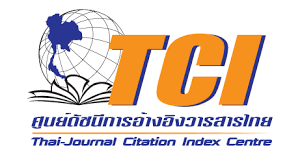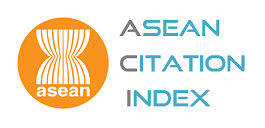Taxing you is tiring me out: Emotional labor and job performance among local revenue collectors in Thailand
- Pawinee Chuayprakong, Graduate School of Public Administration, National Institute of Development Administration, Bangkok, Thailand, E-mail: pawinee.chu@nida.ac.th
Abstract
In a cash-based economy, local governments depend on local tax collectors non-professional employees who wander in neighborhoods to collect cash as tax payments from local residents. Their encounters, nonetheless, may not always go smoothly. Despite being mentally exhausted, local tax collectors must effectively exert emotional labor the management of feelings to create preferred facial and bodily display to maximize local revenue. Most studies on emotional labor focus on professional occupations in developed countries. Hence, through a process-tracing method, this study qualitatively inquires the causal sequence of emotional labor and job performance of local revenue collectors in Thailand. Fifteen in-depth interviews were conducted and a constant comparative method was applied to analyze the interview data. The results offer a preliminary causal process of emotional labor and job performance, underscoring the existence and the relationship between emotional labor on performance. Particularly, general tax knowledge among the residents and revenue collectors’ local knowledge can simmer down the intense encounters and lower the levels of emotional labor. In the case of surface acting, the revenue collectors can seek support and professional advice from the online network of the local revenue administration to surpass those intense encounters without jeopardizing the revenue-generating performance. Meanwhile, the revenue collectors’ local knowledge leads them to perform deep acting and provide tax education to the local residents, which eventually boosts their willingness to pay local taxes. This study recommends that local policymakers include emotional labor training into their organizations’ performance improvement platforms. It also discusses methodological limitations and future research directions.
Keywords: emotional labor, process tracing, revenue collection, taxation, performance, local public finance
DOI: 10.14456/rjsh.2022.2
References
Allen, J. A., & Augustin, T. (2021). So much more than cheap labor! Volunteers engage in emotional labor. The Social Science Journal, 1-17. DOI: https://doi.org/10.1080/03623319.2021.1900671
Ashforth, B. E., & Humphrey, R. H. (1993). Emotional labor in service roles: The influences of identity. The Academy of Management Review, 18(1), 88–115.
Becker, W. J., Cropanzano, R., Van Wagoner, P., & Keplinger, K. (2018). Emotional labor within teams: Outcomes of individual and peer emotional labor on perceived team support, extra-role behaviors, and turnover intentions. Group & Organization Management, 43(1), 38-71.
Bennett, A., & Checkel, J. T. (2014). Process tracing: From metaphor to analytic tool. Cambridge, UK: Cambridge University Press.
Bishu, S. G., & Heckler, N. (2020). Women and men municipal managers doing and undoing gender. Journal of Public Administration Research and Theory, 30(4), 1–17.
Boyne, G. A. (2002). Concepts and indicators of local authority performance: An evaluation of the statutory frameworks in England and wales. Public Money and Management, 22(2), 17–24.
Bozeman, B. (2013). What organization theorists and public policy researchers can learn from one another: Publicness theory as a case-in-point. Organization Studies, 34(2), 169–188.
Brewer, G. A., & Walker, R. M. (2009). The impact of red tape on governmental performance: An empirical analysis. Journal of Public Administration Research and Theory, 20(1), 233–257.
Cheung, F. Y. L., & Tang, C. S. K. (2010). Effects of age, gender, and emotional labor strategies on job outcomes: Moderated mediation analyses. Applied Psychology: Health and Well-Being, 2(3), 323–339.
Chi, N. W., & Grandey, A. A. (2019). Emotional labor predicts service performance depending on activation and inhibition regulatory fit. Journal of Management, 45(2), 673–700.
Collier, D. (2011). Understanding process tracing. Political Science and Politics, 44(4), 823–830.
Corburn, J. (2003). Bringing local knowledge into environmental decision making: Improving rrban planning for communities at risk. Journal of Planning Education and Research, 22(4), 420–433.
Corburn, J. (2007). Community knowledge in environmental health science: Co-producing policy expertise. Environmental Science and Policy, 10(2), 150–161.
Diefendorff, J. M., & Gosserand, R. H. (2003). Understanding the emotional labor process: A control theory perspective. Journal of Organizational Behavior, 24(8), 945–959.
Dimaggio, P. J., & Powell, W. W. (1983). The iron cage revisited: Isomophism and collective rationality in organization fields. American Sociological Review, 48(2), 147–160.
Erickson, R., & Ritter, C. (2001). Emotional labor, burnout, and inauthenticity: Does gender matter? Social Psychology Quarterly, 64(2), 146–163.
Falleti, T. G. (2016). Process tracing of extensive and intensive processes. New Political Economy, 21(5), 455–462.
Fujii, L. A. (2018). Interviewing in social science research: A relational approach. London, UK: Taylor & Francis.
George, A. L., & Bennett, A. (2005). Case studies and theory development in social sciences. Massachusetts, US: MIT Press.
Gerring, J. (2012). Social Science Methodology: A Unified Framework. Cambridge, UK: Cambridge University Press.
Gerring, J. (2017). Case Study Research: Principles and practices (2nd ed.). Cambridge, UK: Cambridge University Press.
Glaser, B. G., & Strauss, A. L. (2006). The discovery of grounded theory: Strategies for qualitative research. Devon, UK: Aldine Transaction.
Grandey, A. A., & Sayre, G. M. (2019). Emotional labor: Regulating emotions for a wage. Current Directions in Psychological Science, 28(2), 131–137.
Guy, M. E., & Lee, H. J. (2015). How emotional intelligence mediates emotional labor in public service jobs. Review of Public Personnel Administration, 35(3), 261–277.
Guy, M. E., Mastracci, S. H., & Yang, S. B. (2019). Introduction: Why emotional labor matters in public service. In M. E. Guy, S. H. Mastracci, & S. B. Yang (Eds.), The Palgrave Handbook of Global Perspectives on Emotional Labor in Public Service (pp. 1–21). London, UK: Palgrave Macmillan.
Guy, M. E., Newman, M. A., & Mastracci, S. H. (2008). Emotional Labor: Putting the Service in the Public Service. New York, US: M.E. Sharpe.
Hall, P. A., & Taylor, R. C. R. (1996). Political Science and the three new institutionalisms. Political Studies, 44(5), 936–957.
Herd, P., & Moynihan, D. P. (2019). Administrative burden: Policymaking by other means. New York, UK: Russell Sage Foundation.
Hochschild, A. R. (1983). The Managed Heart: Commercialization of Human Feeling with a New Afterword. California, US: University of California Press.
Holman, D., Martinez-Iñigo, D., & Totterdell, P. (2008). Emotional labor, well-being, and performance. In S. Cartwright & C. L. Cooper (Eds.), The Oxford Handbook of Organizational Well Being (Issue June, pp. 1–25). Oxford, US: Oxford University Press.
Hsieh, C. W. (2019). Understanding emotional labor in situational contexts: How mistreatment matters. In M. E. Guy, S. H. Mastracci, & S. B. Yang (Eds.), The Palgrave Handbook of Global Perspectives on Emotional Labor in Public Service (pp. 149–171). London, UK: Palgrave Macmillan.
Hülsheger, U. R., Lang, J. W. B., & Maier, G. W. (2010). Emotional labor, strain, and performance: Testing reciprocal relationships in a longitudinal panel study. Journal of Occupational Health Psychology, 15(4), 505–521.
Hur, W. M., Shin, Y., & Moon, T. W. (2020). Linking motivation, emotional labor, and service performance from a self-determination perspective. Journal of Service Research, December, 1–15. https://doi.org/10.1177/1094670520975204
Jakobsen, M. L. F., & Mortensen, P. B. (2016). Rules and the Doctrine of Performance Management. Public Administration Review, 76(2), 302–312.
Kammeyer-Mueller, J. D., Rubenstein, A. L., Long, D. M., Odio, M. A., Buckman, B. R., Zhang, Y., & Halvorsen-Ganepola, M. D. K. (2012). A meta-analytic structural model of dispositonal affectivity and emotional labor. Personnel Psychology, 66(1), 47–90.
Klein, H. J. (1989). An integrated control theory of work motivation. The Academy of Management Journal, 14(2), 150–172.
Leavy, P. (2017). Research design: Quantitative, qualitative, and community-based participatory reserach approaches. New York, US: The Guilford Press.
Lee, H. J. (2021). Does ethical leadership benefit emotional labor outcomes in public service? International Journal of Public Administration, 44(4), 311–321.
Lee, M. S., & Kim, H. S. (2020). The effects of service employee resilience on emotional labor: Double-mediation of person–job fit and work engagement. International Journal of Environmental Research and Public Health, 17(19), 1–15.
Li, G., Fang, Y., Song, Y., Chen, J., & Wang, M. (2020). Effects of family encouragement on migrant workers’ return-to-hometown intention and turnover: The moderating role of career-related concerns. Career Development International, 25(2), 165–185.
Lipsky, M. (2010). Street-level bureaucracy: Dilemmas of the individual in public services. New York, US: Russell Sage Foundation.
Liu, Y., Prati, L. M., Perrewé, P. L., & Ferris, G. R. (2008). The relationship between emotional resources and emotional labor: An exploratory study. Journal of Applied Social Psychology, 38(10), 2410–2439.
Lively, K. J. (2013). Social and cultural influencers: Gender effects on emotional labor at work and at home. In A. A. Grandey, J. M. Diefendorff, & D. E. Rupp (Eds.), Emotional Labor in the 21st Century: Diverse Perspectives on Emotion Regulation at Work (pp. 223–249). New York, US: Routledge.
Ma, S., Silva, M. G., Trigo, V., & Callan, V. J. (2020). The influence of emotional labor and emotional intelligence on job performance: Does ownership type matter? A comparison of public and private organizations in China. International Journal of Public Administration, 43(9), 745–756.
Mahoney, J. (2015). Process tracing and historical explanation. Security Studies, 24(2), 200–218.
Mastracci, S. H., Newman, M. A., & Guy, M. E. (2010). Emotional Labor: Why and How to Teach It. Journal of Public Affairs Education, 16(2), 123–141.
Mastracci, S. H., Newman, M. a, & Guy, M. E. (2006). Appraising emotional work: Determining whether emotional labor is valued in governmental jobs. American Review of Public Administration, 36(2), 123–138.
Maynard-Moody, S., & Mushenno, M. C. (2003). Cops, Teachers, Counselors: Stories from the Front Lines of Public Service. Michigan, US: University of Michigan Press.
Meier, K. J., Mastracci, S. H., & Wilson, K. (2006). Gender and emotional labor in public organizations: An empirical examination of the link to performance. Public Administration Review, 66(6), 899–909.
Miles, M. B., & Huberman, M. A. (1994). Qualitative Data Analysis (2nd ed.). New York, US: Sage Publications Ltd.
Morris, J. A., & Feldman, D. C. (1996). The dimensions, antecedents, and consequences of emotional labor. The Academy of Management Review, 21(4), 986–1010.
Morse, J. M., Stern, P. N., Corbin, J., Bowers, B., Charmaz, K., & Clarke, A. E. (2009). Developing grounded theory: The second generation. London, UK: Taylor & Francis.
Moynihan, D., Herd, P., & Harvey, H. (2014). Administrative burden: Learning, psychological, and compliance costs in citizen-state interactions. Journal of Public Administration Research & Theory, 25(1), 43–69.
National Audit Office of the United Kingdom. (2008). Benchmarking of tax administration. EROSai Congress. Retrived form https://www.eurosai.org/handle404?exporturi=/export/sites/eurosai/.content/documents/training/training-committe/Benchmarking-of-Tax-AdministrationsFinal-Report.pdf
Nguyen, H., Groth, M., & Johnson, A. (2016). When the going gets tough, the tough keep working: Impact of emotional labor on absenteeism. Journal of Management, 42(3), 615–643.
Nisar, M. A. (2018). Children of a lesser god: Administrative burden and social equity in Citizen-state interactions. Journal of Public Administration Research and Theory, 28(1), 104–119.
Nixon, A. E., Yang, L. Q., Spector, P. E., & Zhang, X. (2011). Emotional labor in china: Do perceived organizational support and gender moderate the process? Stress and Health, 27(4), 289–305.
Noor, N. M., & Zainuddin, M. (2011). Emotional labor and burnout among female teachers: Work-family conflict as mediator. Asian Journal of Social Psychology, 14(4), 283–293.
Nowell, B., & Albrecht, K. (2018). A reviewer’s guide to qualitative rigor. Journal of Public Administration Research and Theory, 29(2), 348–363.
Oates, W. E. (1985). Searching for Leviathan: An Empirical Study. The American Economic Review, 75(4), 748–757.
Onwuegbuzie, A. J. (2003). Expanding the framework of internal and external validity in quantitative research. Research in the Schools, 10(I), 71–89.
Randolph, J. J. (2009). A guide to writing the dissertation literature review. Practical Assessment, Research and Evaluation, 14(13), 1–13.
Roh, C. Y., Moon, M. J., Yang, S. B., & Jung, K. (2016). Linking emotional labor, public service motivation, and Job satisfaction: Social workers in health care settings. Social Work in Public Health, 31(2), 43–57.
Rupp, D. E., & Spencer, S. (2006). When customers lash out: The effects of customer interactional injustice on emotional labor and the mediating role of discrete emotions. Journal of Applied Psychology, 91(4), 971–978.
Schwarzer, R., Schmitz, G. S., & Tang, C. (2000). Teacher burnout in Hong Kong and Germany: A cross-cultural validation of the Maslach burnout inventory. Anxiety, Stress and Coping, 13(3), 309–326.
Simillidou, A., Christofi, M., Glyptis, L., Papatheodorou, A., & Vrontis, D. (2020). Engaging in emotional labour when facing customer mistreatment in hospitality. Journal of Hospitality and Tourism Management, 45(October), 429–443.
Strauss, A., & Corbin, J. M. (1998). Basics of qualitvative research: Grounded theory procedures and techniques. New York, US: Sage Publications Ltd.
Sutton, R. (1991). Maintaining nors about expressed emotions: The case of bill collectors. Administrative Science Quarterly, 36(2), 245–268.
Tamronglak, A. (2019). Thailand. In M. E. Guy, S. H. Mastracci, & S.-B. Yang (Eds.), The Palgrave Handbook of Global Perspectives on Emotional Labor in Public Service (pp. 399–422). London, UK: Palgrave Macmillan.
USAID. (2000). Decentralization and Democratic Local Governance Programming Handbook (Issue May). Washington D.C., US: Center for Democracy and Governance.
Van de Ven, A. (2007). Engaged Scholarship: A Guide for Organizational and Social Research. Oxford , UK: Oxford University Press.
Woo, Y., & Kim, E. (2020). Analyzing determining factors of young graduates’ decision to stay in lagged regions. Sustainability, 12(8), 1–10.
Yang, S.-B., & Guy, M. E. (2015). Gender effects on emotional labor in Seoul Metropolitan area. Public Personnel Management, 44(1), 1–20.

Indexed in


Search